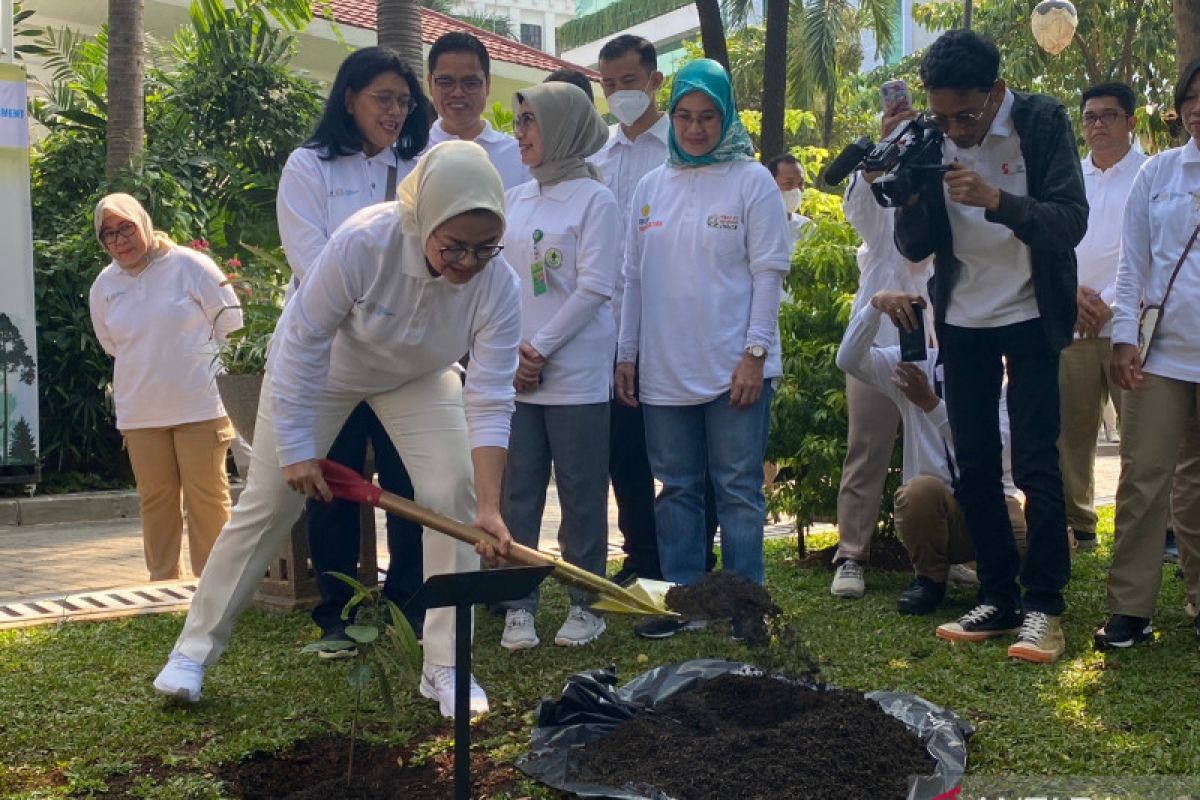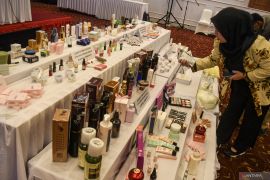“Planting these (medicinal) plants is part of our movements. With all BPOM branches throughout Indonesia, we were able to plant 10,000 medicinal plants," the Head of BPOM, Penny K Lukito, mentioned in a press conference on Sunday.
She informed that the process of collecting tree seedlings required a long process. However, with the active involvement of all parties, the event can be held simultaneously in remote districts/cities.
Lukito conveyed that the medicinal plants consist of nutmeg, noni, and moringa leaves. The planting event was also attended by representatives from relevant ministries/institutions, such as from Ministry of Health, Ministry of Agriculture, and National Development Planning Agency.
Through the activity, BPOM seeks for people's understanding on its role in maintaining a sustainable environment apart from being mandated as a regulator and supervisor in the manufacture and distribution of drugs and food.
"Our role includes ensuring the availability of a supply chain for the drug and food industry, but still prioritizing the sustainability of raw materials in a safe and efficacious way," she added.
Related news: Potential to use medicinal plants in medicines, cosmetics: ministry
By emphasizing sustainable product and consumption, BPOM has urged every industrial player to beware of the production process that can pose a risk to the environment, for instance, an environment contaminated with hazardous materials.
This can be seen in cases of syrup drug poisoning in children due to the exceeding percentage of ethylene glycol (EG) and diethylene glycol (DEG) which cause acute kidney failure, Lukito mentioned.
She further mentioned if the production process is not according to standards and producers choose to dump their waste into the water, it will trigger water pollution or air pollution which endangers environmental quality.
Therefore, she reminded all parties, especially manufacturers in the drug and food industry, to preserve nature and to be cautious in carrying out production activities that are prone to damage the environment.
"We are really concerned about the environment during the production process and also the consumption. Our agency is playing a big role to provide incentives as a regulator. BPOM provides intensive measures when we regulate products under BPOM supervision," she remarked.
She also encourages the community to contribute to the civilization of the nation's children in the future.
"We have to get involved in doing positive things to protect the environment," she emphasized.
Related news: Strengthening evidence-based herbal medicine
Translator: Hreeloita Dharma S, Resinta S
Editor: Yuni Arisandy Sinaga
Copyright © ANTARA 2023










